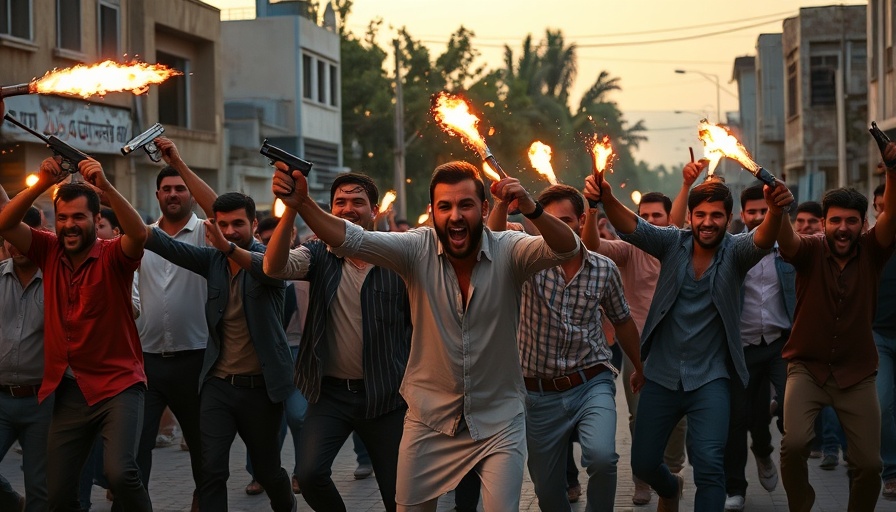
A New Chapter: Changing Wedding Traditions in Syria
Syria is in the midst of a cultural transformation, particularly when it comes to the way celebrations are conducted. For years, weddings and joyous occasions were marked by the cracking sound of gunfire echoing in the air. Unfortunately, this practice, deeply rooted in the Syrian culture, has led not only to celebratory cheers but also to tragic incidents of injuries and casualties. Now, under the new governance formed after years of conflict, there is a push for a safer, more colorful form of celebration—fireworks.
The Dangers of Celebratory Gunfire
Gunfire at weddings, while seen as a traditional expression of joy, poses significant dangers. Falling bullets can cause severe injuries or even fatalities, as community member Muhammad Dandar notes from his experience—citing instances ranging from celebratory gunfire to the use of more deadly weapons like grenades. The aftermath of these practices does not align with the hope of a society healing from years of war. The desire to transition to fireworks showcases a broader yearning for peace and a festive yet safe environment.
Government’s Response to Airborne Firearms
The newly established government in northwestern Syria has taken steps to mitigate the use of firearms at celebrations. In a clear rejection of the dangerous celebratory custom, the authorities are levying fines for those who disregard the new regulations. The penalties include confiscation of weapons and hefty fines of up to $100, leading to speculation about compliance among traditional wedding attendees. Such measures signify an important cultural shift and are embraced by many who understand the necessity of moving away from a violent past.
The Shift towards Fireworks: A Safer Alternative
Fireworks have recently become more accessible in Syria, as the government seeks to replace gunfire with pyrotechnics. Despite concerns about their proper handling, revelers such as Muhammad Sheeb express optimism about the transition, highlighting that fireworks pose a lower risk to public safety when compared to bullets soaring through celebrations. The festive atmosphere created by these visual spectacles also allows a break from a history marked by gun violence, fostering a renewed sense of community and happiness.
Traditions in Transition: Challenges and Acceptance
Not all community members are on board with the transition from gunfire to fireworks. Engagement from older generations steeped in traditional customs struggles against the backdrop of new directives. In one wedding, despite requests to refrain from gunfire made by the bride and groom, several guests ignored the requests, reflecting the difficulty of altering long-standing cultural practices. Such incidents illustrate the tension between tradition and modern governance, emphasizing the ongoing dialogue surrounding cultural changes in a post-conflict society.
Community Reactions: A Road Ahead
The overall sentiment among Syrians appears one of agreement with the new approach, as illustrated by residents celebrating their weddings without the echo of gunfire. As weddings are now decorated with fireworks instead of bullets, this shift also marks moving away from the traumatic history of the last fourteen years. There's an unspoken understanding among many that the joy of weddings should be unmarred by fear and mourning and should reflect a collective desire for peace and safety.
Conclusion: Moving Forward Together
As Syria forges ahead, the culture surrounding weddings is being redefined—ushering in a new era where joy is encouraged without the cost of human safety. Recognizing the deep ties to tradition, the adjustment to fireworks in place of gunfire symbolizes hope for a brighter future, free of violence. With fireworks lighting the skies, celebratory tones can shift from a history of pain to one of renewed life and joy among the people.
 Add Row
Add Row  Add
Add 




Write A Comment